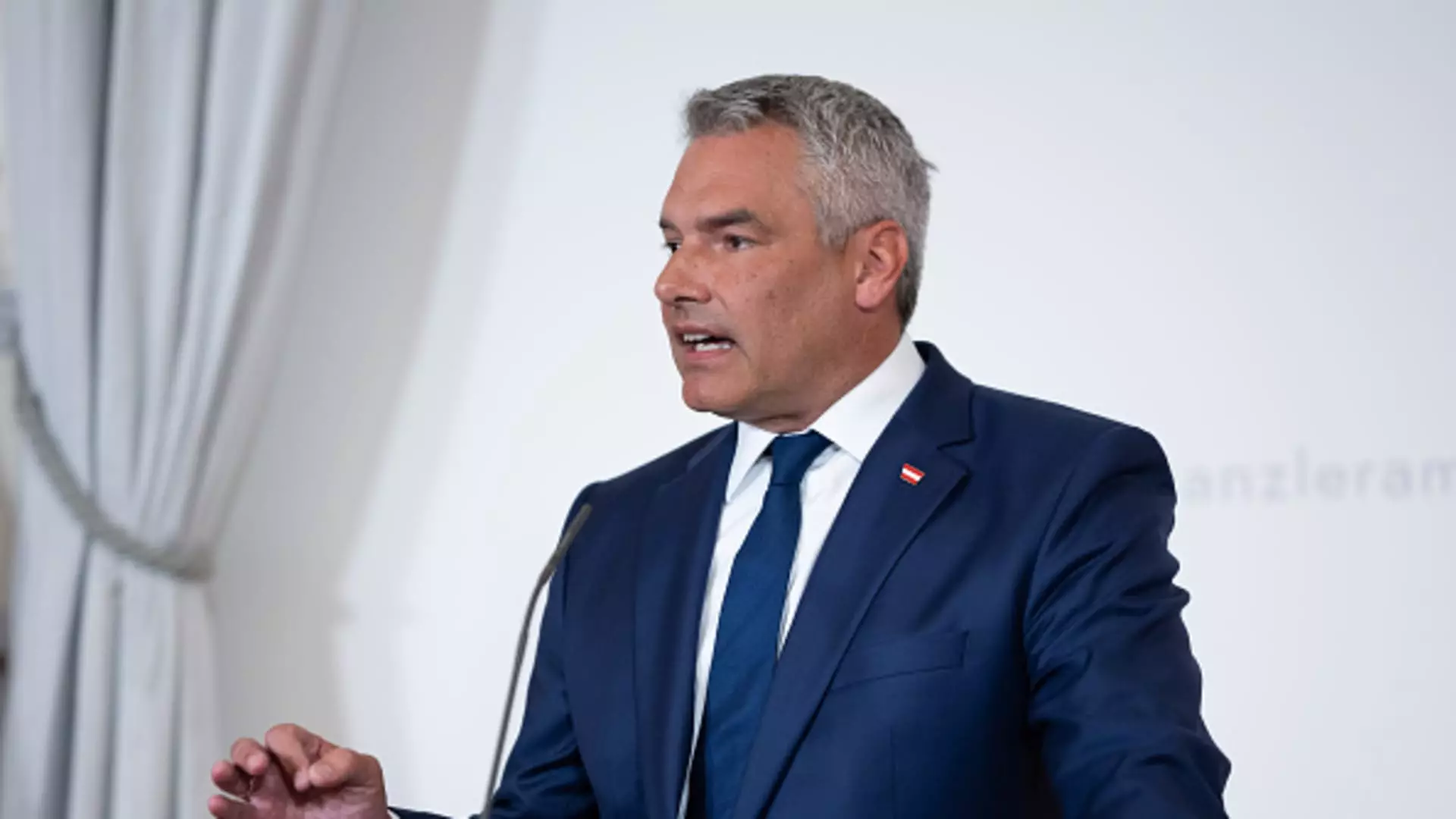Austria is currently navigating a challenging political landscape marked by the collapse of coalition talks among its main centrist parties. This disruption has brought to the forefront questions regarding governance, the role of far-right parties, and the overall stability of leadership within the country. Chancellor Karl Nehammer’s announcement to step down represents more than just a leadership change; it signals underlying currents that could reshape Austria’s political future.
On a recent Saturday, discussions aimed at forming a new government between Chancellor Nehammer’s People’s Party (OVP) and the Social Democrats (SPO) fell apart, highlighting the intricate complexities of contemporary European politics. The liberal Neos party withdrew from negotiations, accusing the centrist factions of avoiding tough decisions necessary for meaningful governance. This stalemate illustrates a growing trend in various European nations where traditional party dynamics are increasingly challenged by the rise of populist elements.
In a video statement, Nehammer expressed his intention to resign both as Chancellor and OVP leader, emphasizing the need for an “orderly transition.” His decision reflects a broader discontentment with the inability to forge partnerships necessary for a functional government. The collapse of coalition talks, just months after the parliamentary elections, raises questions about the prospects for stable governance in Austria, particularly in a political climate where extremism is gaining traction.
The Implications of a Rising Far-Right
The far-right Freedom Party (FPO) emerged as a significant player in the recent elections, securing approximately 29% of the vote. Despite its substantial popularity, the reluctance of centrist parties to align with the FPO, which is known for its eurosceptic and pro-Russian stances, creates a paradox. Nehammer has openly ruled out collaboration with FPO leader Herbert Kickl, citing concerns over Kickl’s more extreme beliefs and conspiracy theories. This rejection suggests an unwillingness to embrace a more radical agenda even when it comes at the cost of forming a government.
Recent opinion polls reveal that the FPO holds a lead over the OVP and SPO, indicating a shifting political landscape that both challenges established parties and complicates possibilities for coalitions. As President Alexander Van der Bellen navigates these turbulent waters, he faces a historic dilemma: either risk endorsing a government led by the FPO or initiate a snap election which could further destabilize the political climate.
With Nehammer stepping down, Austria stands on the brink of significant political changes. Observers speculate that the next steps may involve either appointing Kickl to form a government or calling for immediate elections. The prospect of an FPO-led government raises alarm signals within the legislative arena, particularly among those who view such an administration as a threat to democratic values. As SPO leader Andreas Babler noted, the risk of an “right-wing extremist chancellor” looms large over the nation. Such sentiments reflect a palpable anxiety surrounding the far-right’s increasing influence.
Despite his party’s initial rejection of coalition talks with the FPO, Nehammer’s resignation may compel the OVP to reevaluate its stance. Party leadership is poised to convene, with discussions likely centering around a successor who may be more amenable to collaboration with the FPO. The historical context of previous coalition alliances looms large; the OVP and FPO governed jointly from 2017 to 2019 until a scandal forced their separation.
As the dust settles on failed negotiations, Austria finds itself at a political crossroads. Kickl’s insistence on the inadequacies of current leadership further exacerbates tensions between the parties. His critiques echo a broader sense of frustration experienced by many who feel that traditional governance structures are failing to address pressing societal issues.
Meanwhile, President Van der Bellen’s resistance to endorsing a Kickl-led government signifies a commitment to preserving democratic integrity. The challenges facing Austria mirror those of other democratic nations grappling with populist forces that threaten established norms. As citizens seek representation that resonates with their concerns, the political environment will continue to evolve.
Ultimately, Austria must confront its governance challenges head-on, considering the implications of fragmenting coalitions while navigating a complex relationship with rising extremist parties. The path forward may involve renewed attempts at collaboration or a readiness to embrace the electoral process as a means for change. Whatever the outcome, Austria’s political trajectory will be closely watched as it endeavors to find stability amid uncertainty.

